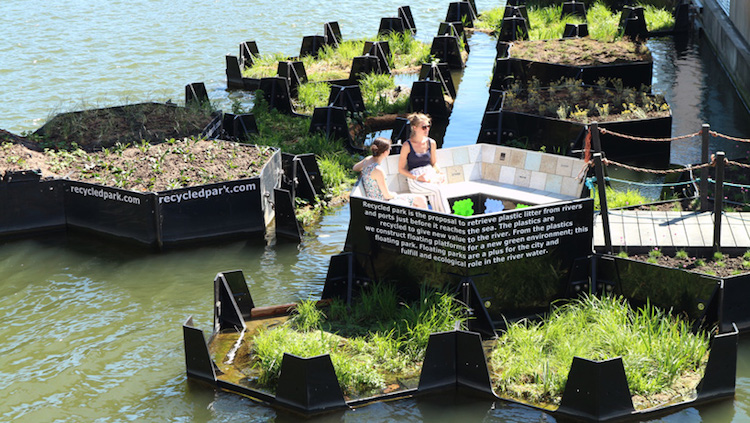
In Rotterdam, a floating park in the Maas River is showing just what can be created from plastic waste. Thanks to the Recycled Island Foundation, plastic collected from the river and port has been transformed into 1,500 square feet of floating habitat that will give back to the ecosystem.
The foundation developed floating litter traps that ensnared the river trash over the course of 1.5 years, which was then sorted and recycled. The recycled plastic was molded into 28 hexagonal blocks that link together to form the Recycled Park. Each hexagon is filled with earth, allowing vegetation to grow. Birds, fish, and microorganisms also benefit from a new food source, as well as new breeding ground and shelter.
“When we retrieve the plastics directly in our cities and ports we actively prevent the further growth of the plastic soup in our seas and oceans,” shares Ramon Knoester, creator of the Foundation. “The realization of the building blocks in recycled plastics is an important step towards a litter free river.”
The opening of Recycled Park is a triumph for the young organization, which spent the last 5 years designing, researching, fundraising, and involving stakeholders in the project. Now, they are continuing on their quest to rid waters of plastic and searching for new locations to expand their concept.
The Recycled Island Foundation spent 1.5 years developing floating litter traps to harvest debris from Rotterdam’s river.
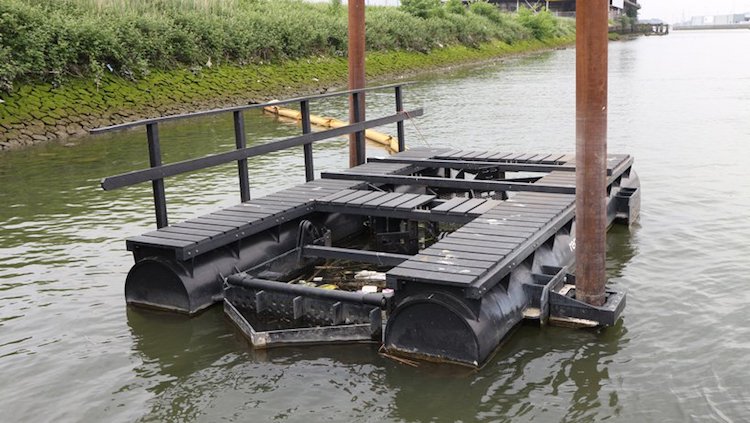
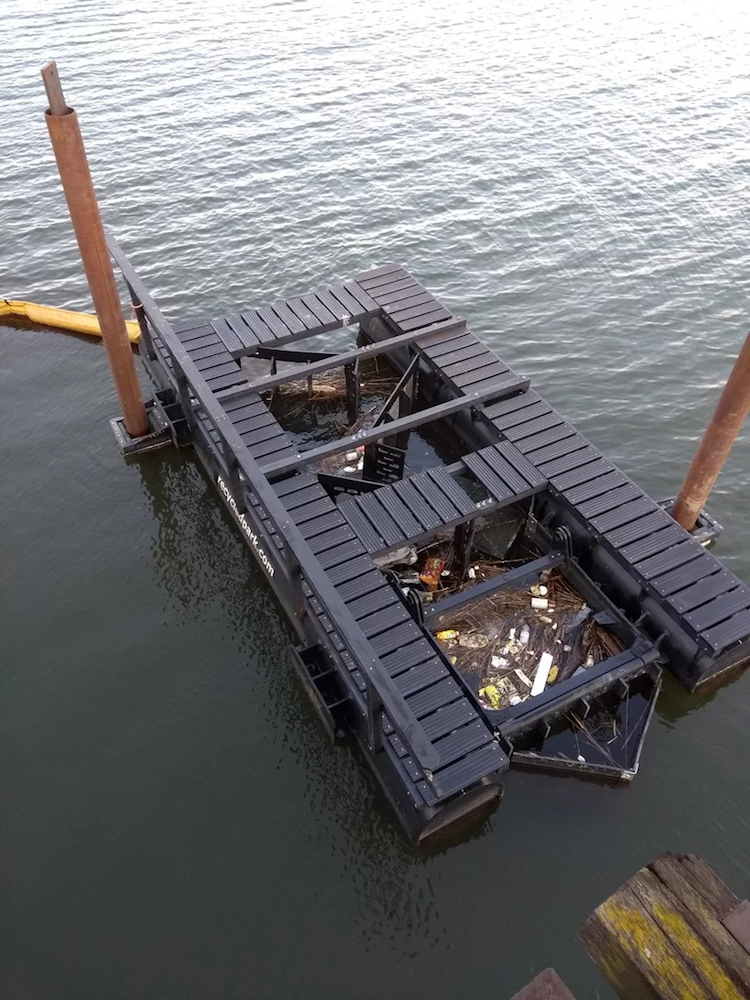
The recycled plastic was then used to create a floating park that will give back to the river’s ecosystem.
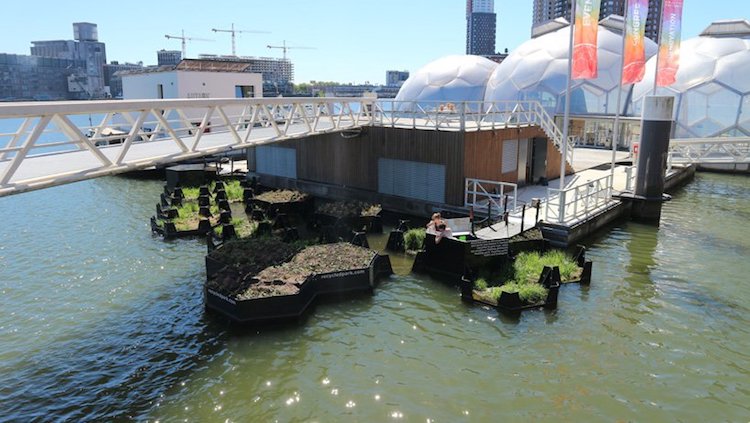
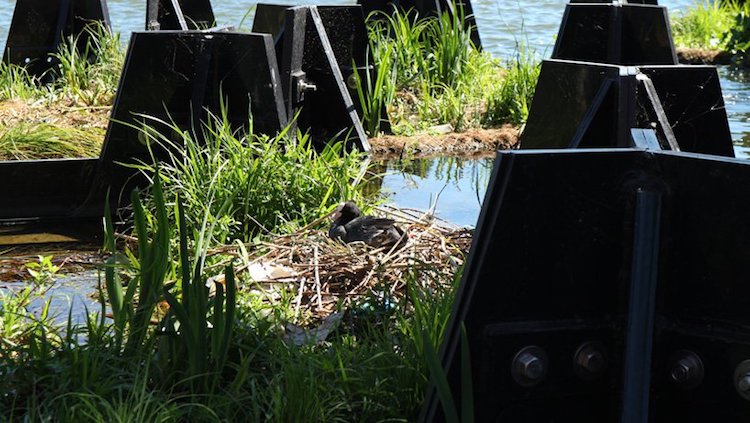
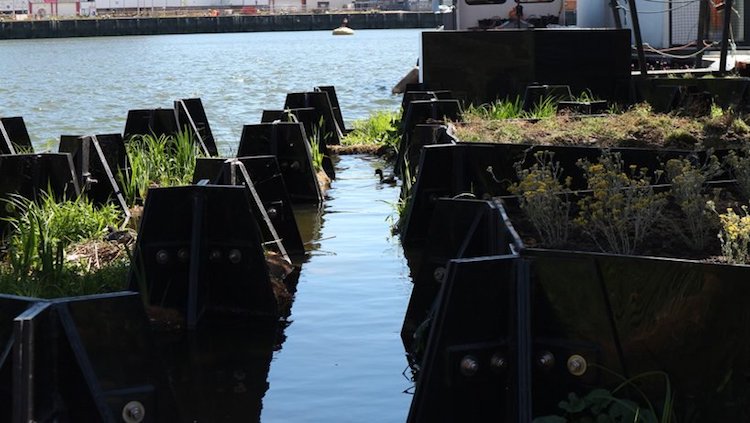
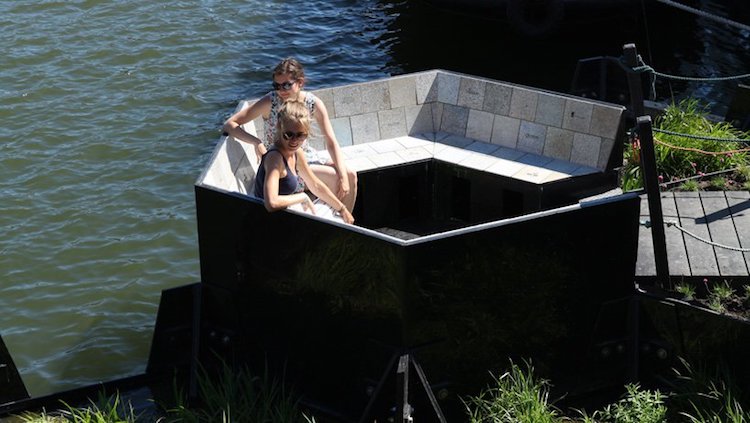
Learn more about how the Recycled Island Foundation brought their innovative concept to life.
Recycled Island Foundation: Website | Facebook
h/t: [designboom]
All images via Recycled Island Foundation.
Related Articles:
Floating Gardens in the Chicago River Designed to Create Urban Wildlife Sanctuary
Volunteers Collect 12,000 Tons of Plastic Trash on a Beach in Mumbai
Floating ‘Trash Wheels’ Clean Up 1 Million Pounds of Debris in Baltimore’s Harbor
